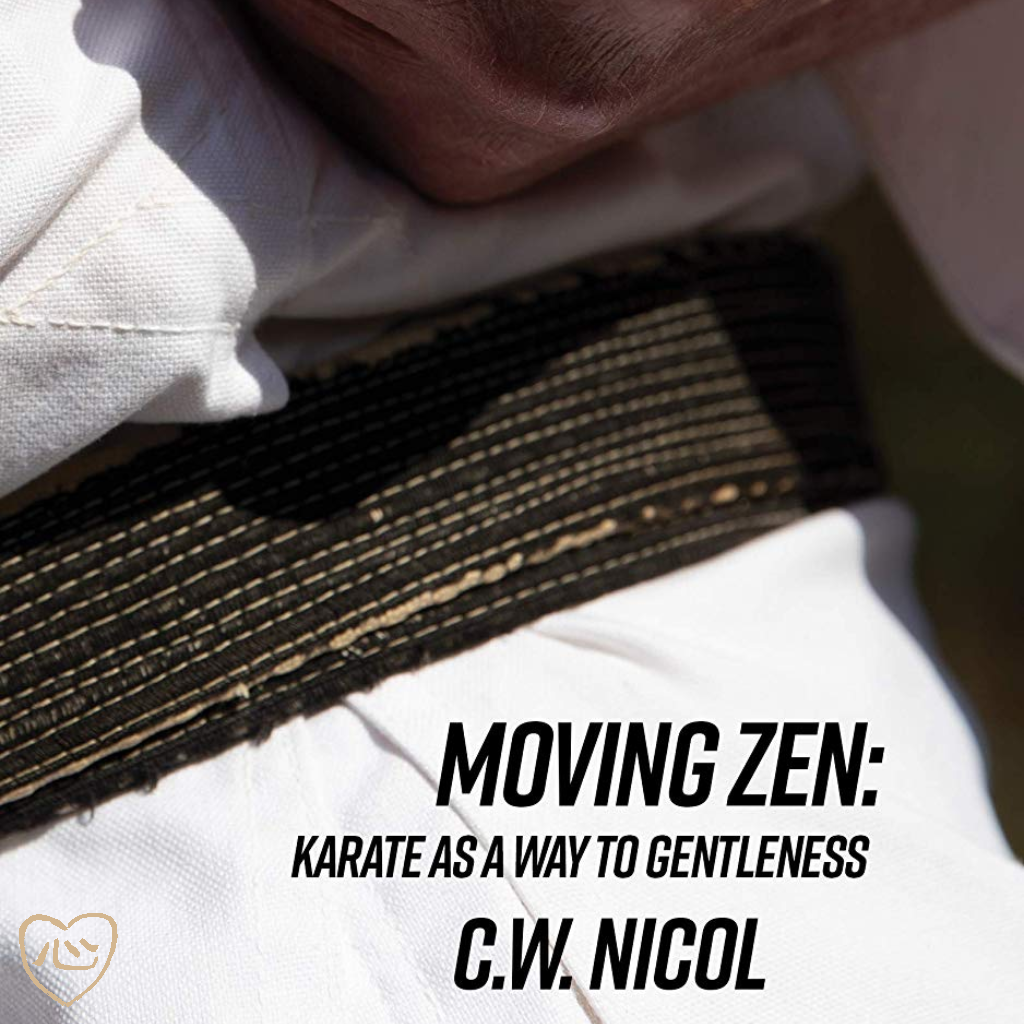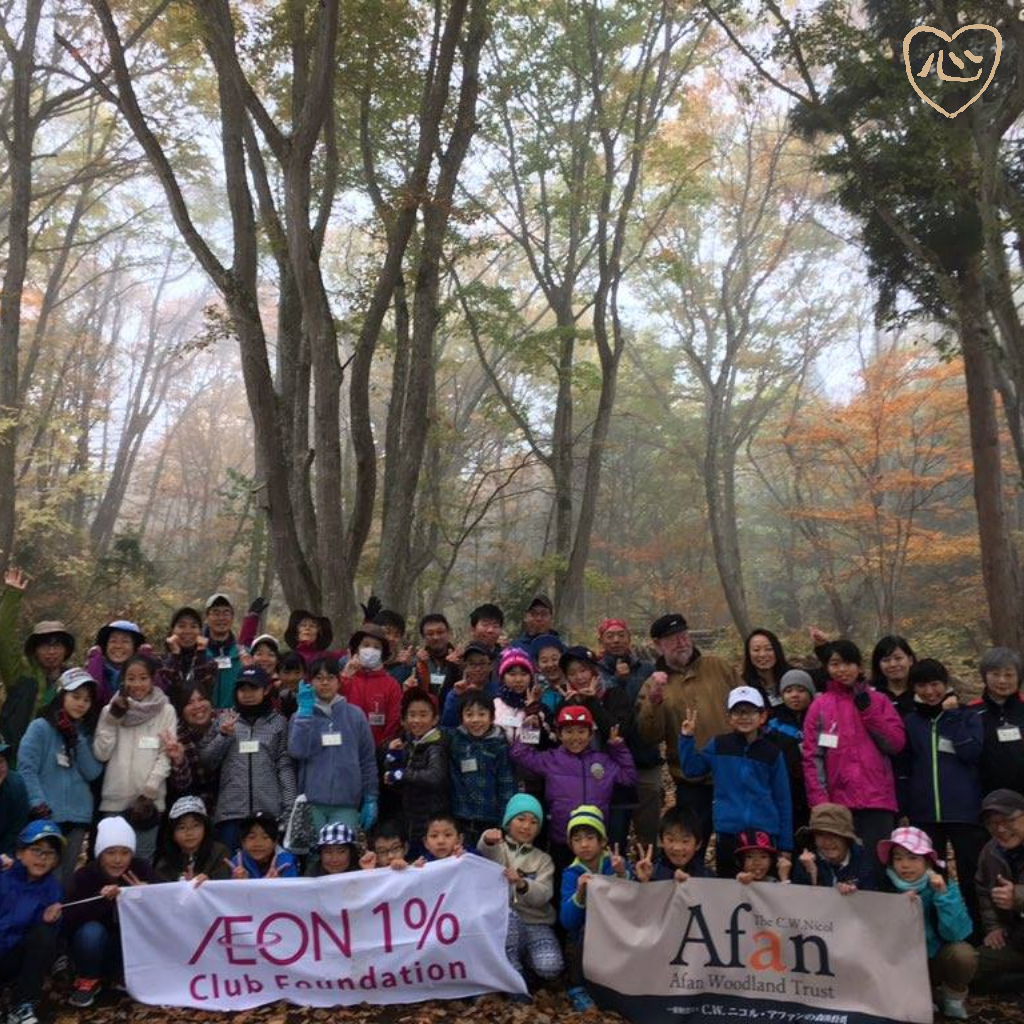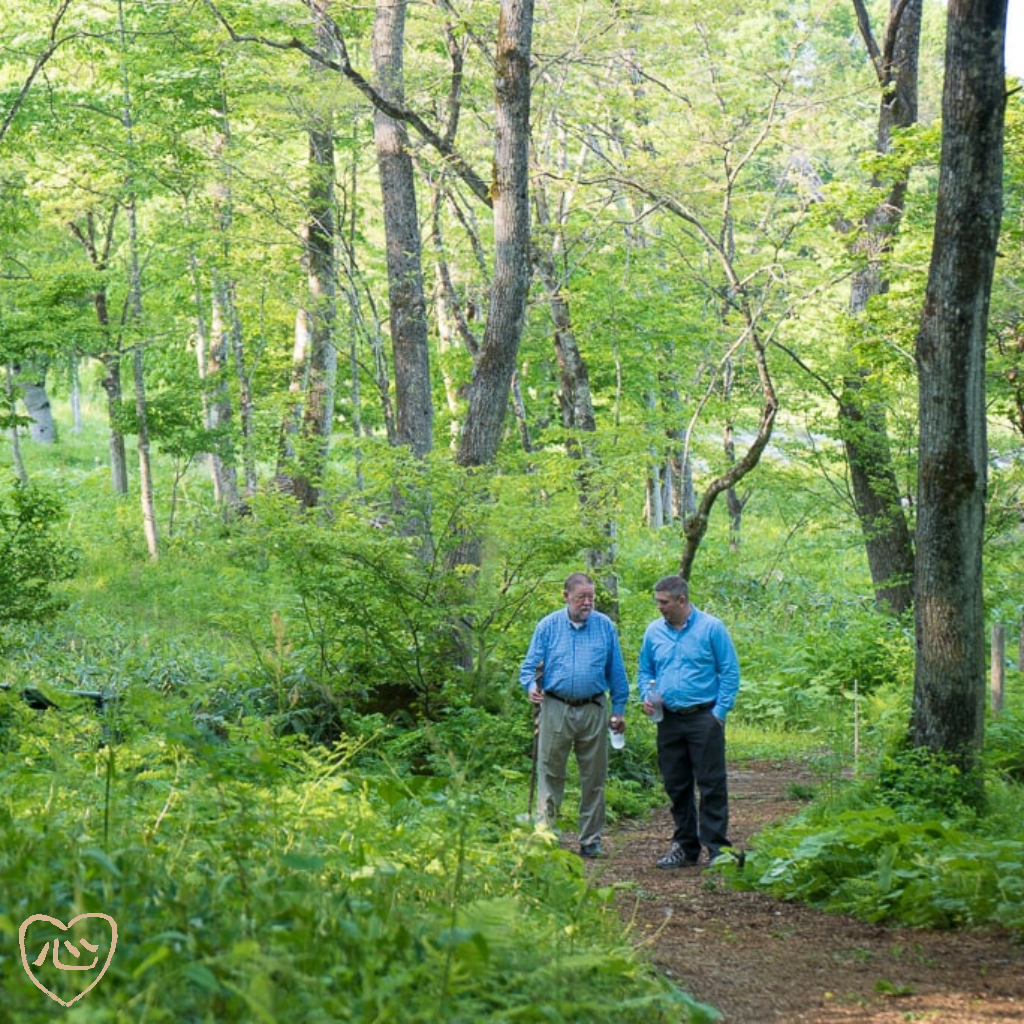KOKORO GIN
NICOL’S INVOLVEMENT WITH ENVIRONMENTAL EDUCATION IN JAPAN
In the late 1980’s C.W.Nicol sat on a panel for the Japanese Minister of the Environment. There were many problems and ideas for solutions. Only Nicol brought up the problem of the serious lack of trained national park rangers. There are 41 national parks, 58 quasi national parks and 314 prefectural parks in Japan but at the time there were only 120 park rangers. Most of these rangers had no real field training; they took up their positions straight from university. Usually there was only a single ranger assigned to a national park, and that only for two, maybe three years. In contrast, when Nicol established the Simien Mountain National park in Ethiopia he had under his command 20 armed rangers and an assistant warden who graduated from the College of African Wildlife Management in Mweka, in Tanzania.
At the end of a year of sitting on this panel Nicol submitted a plan to establish a college to train rangers in Japan. After a year he was approached by the Japan Wildlife Research Centre who wanted him to help in establishing a college to train wildlife research field workers, rangers, and guides for eco-tourism. The college opened with around a hundred students for a two-year course for the first time in 1995. The college was to be in Tokyo, but with extensive field training in Kurohime, Nagano, and in Yakushima Island, southern Kyushu. Nicol became the head of field training. He is now honorary principle of the Tokyo College of the Environment which has over the last two decades graduated around fifteen hundred students many of whom are employed by the Ministry of Environment, the Forestry Agency, various environmentally concerned companies and organizations, and with others self-employed as wildlife field workers or guides.
In order to have more freedom to do things than can be done in national parks, first year students of the college do a lot of their fieldwork in the Afan Woodland Trust.
Over the years Nicol noticed that many students were not so strong and tough as those of the first few years. Many had practically no outdoor experience. There were, and still are exceptions, but it is an increasing problem. Nowadays many young Japanese have never played in nature, and this is becoming true of their parents. They have never climbed a tree, built a den, lit a campfire, or learned any of the basic outdoor survival skills.
When the Afan woodland became a trust in 2002, Nicol and his staff initiated a program to bring children from orphanages for three days of play in the woods. Many of these children had been abused by their parents or suffered various traumas. It was wonderful to watch how so many of these children opened up when in the woods or playing in the streams. They had smiles on their faces. They asked questions. They began to reach out to the instructors and other children. Even the sound of their laughter changed. You could see the looks of wonder on their faces when they caught a tree frog, or discovered animal tracks in the snow.
This children’s program has now been extended to the children of the Fukushima area who no longer play outside due to radioactive pollutions from the 2011 disaster.
Over the years Nicol and his staff became increasingly concerned about what Rich Louv termed ‘nature deficit disorder.’ This disorder can manifest itself in children being unable to concentrate, with habits and outbreaks that disrupt classwork, liability to have tantrums or cry and scream. Many of them tripped or fell, and hurt themselves when they did. Many could not make friends.
Nicol also noted that as these kids grew they were likely to skip school, stay in their rooms, unable to make friends or fall in love. Most of them became addicted to virtual reality. He noticed that many of these young men especially seemed lacking in peripheral vision, or would not notice a bird or a small animal at any distance from them, even when it was moving. They seemed not to notice what was at their feet.
Children need to play, and by thus doing learn, in nature. They need to use all five senses. If they do not use, and thus develop their senses as they grow the brain does not develop as millions of years of evolution intended it to. Children especially are not meant to be so immersed in the pseudo reality of screens.
Nicol’s personal friend and physician, Dr. Shoko Honma, now retired from the Tokyo Police Hospital, and an expert on heart and lungs, which for her includes aromatherapy, did some research on the effects of a few hours of walking, with some deep breathing exercises, in Nagano woodland. She took groups of adults, of all ages and employment, and had simple tests run at the small local hospital ten minutes drive from the woodland trust. They measured blood pressure, and took samples of blood and saliva to test for the immune system and so on. Then, after the forest walk the tests were repeated.
In all cases pulse and blood pressure stabilized. In all cases stress levels decreased and the immunity system was enhanced. Of course there were individual differences, but nobody was unaffected by these walks.
With children of course, such testing was out of the question, so the woodland trust took to another method to try to understand what was happening to children, especially children who had been abused or traumatized.
This was art therapy. Before the children came to the woods, woodland staff went to the orphanages, and played games with them. One of the games was to get the children to draw, with crayons, certain subjects such as a stream, a house, a country road, and so on. The kids did not know what this was for. Many of them drew people with no legs, arms with no fingers, and faces without eyes. They drew houses without doors. Some scribbled big patches of red or black on the page.
An expert studied these pictures and then came to the woods with the children. On the last day the children were asked to draw again. The change was dramatic. There were happy faces, people holding hands, houses with window, doors and even smoke from chimneys. The streams had a bridge. There were all kinds of details in the pictures such as birds, animals, fish, insects, and flowers.
Nicol is now pushing for the woodland trust to initiate a program to train young teenage ‘forest leaders’ who can play with children in the woods and streams, learn to enjoy and explore nature, light fires in rain or snow, learn what can be foraged and how to prepare wild foods outdoors, build shelters and so on.
In 2020, the year of the second Tokyo Olympics, old ‘Uncle Nic’ will reach 80 years of age, but he won’t really be able to retire. Surely, working with the woods, the children and the horses, not to mention enjoying a nice tot (especially Kokoro gin!) in the evening, will help him keep on going.
Here’s to your health and happiness!
C.W.Nicol MBE
Chairman
The C.W.Nicol Afan Woodland Trust.
Kurohime,
Nagano,
Japan.
January 8.2019.





